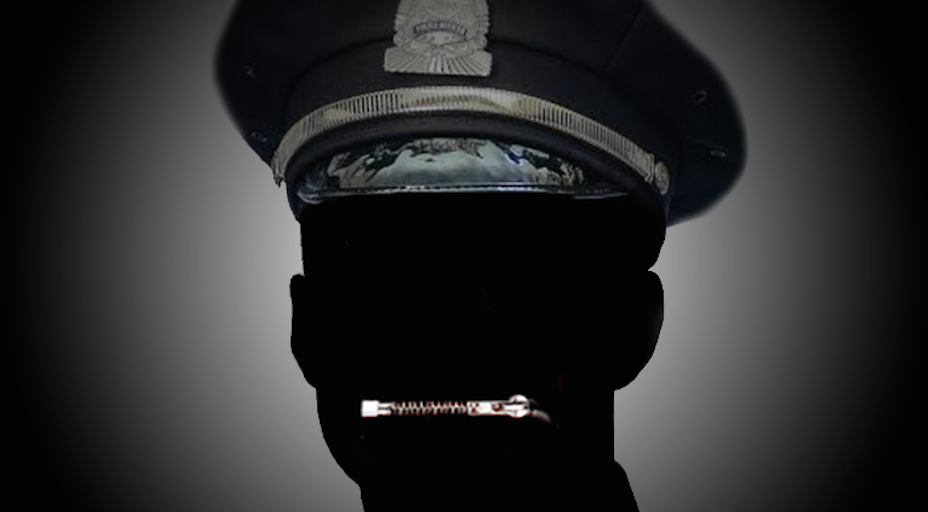De Anza police should be more transparent
Editors Note: Foothill-De Anza Chief of Police Ronald Levine has responded since in a letter criticizing this editorial. (click to view)
Back in 2004, when now Foothill-De Anza Chief of Police Ronald Levine was sworn into office, he pledged to implement a strong community-oriented policing program, with the stipulation of improving friendly contact between police and students.
Thirteen years later, we have no doubt that some progress was made, but La Voz believes that the De Anza police in particular must implement stronger policies of transparency and public accountability if they are truly vested in being community-oriented.
Currently, the department practices a bizarrely dysfunctional communications policy which effectively acts as a gag order against the press, requiring all information to come either from Levine or Marisa Spatafore, an Associate Vice President in charge of communication — who is not part of the police department and has no authority over it.
About a month ago, one our editors walked into the police station and asked a series of questions about a particular incident registered on the police’s online log; an officer answered every single question. But, when the editor identified himself as a writer for La Voz, the officer said that he was not allowed to print anything mentioned, even though he was speaking in a public space. Prior restraint of the press would be a violation of the first amendment.
When a potential fire caused disarray on campus during winter quarter final exams, officers and student police refused to answer very simple questions, including whether there was a fire at all. One of our editors had had to go through 12 separate sources to get basic factual information about an outdated transformer causing smoke on De Anza’s campus. He finally received the bare necessities from Spatafore and Levine. Outside of our coverage, neither the police nor the administration actually explained why students were evacuated and relocated outdoors to take their finals.
Certain policies of confidentiality exist to protect the privacy of students and suspects and should not arbitrarily apply to satisfy the paranoia of authority figures. A reasonable expectation of transparency should be a part of a broader litmus test for measuring the success of student-police relations and is particularly essential given recent complaints from students.
Viana Marie Lopez Roland, 23, political science major, said she was in a car that an officer had pulled over for expired tags and described the encounter as “rude and hostile.”
“I was threatened with arrest for obstruction of justice for asking why we were being questioned so aggressively for being passengers,” she said. The cop then approached me while placing his hand on his weapon. I was scared.”
Both La Voz and students in general should be directly interacting with responsive faces that they already know, given that campus police solely exist for the protection of a small community of students. Instead, we have a so-called community policing that hinges upon Levine, stationed seven miles away at Foothill College, and Marisa Spatafore, whose job is not to triangulate information about police activity.
The bottom line: Some students feel afraid or intimidated by police, while the police only add fuel to the fire by conducting themselves in such secrecy.
“Obviously police have been getting a lot of negative press coverage lately, especially from the left,” an anonymous source from within the police department said. “Deserved or not, it’s easy to see why officers would want to avoid journalists at a college like this,” referring to De Anza’s political progressiveness.
Again, we want to reaffirm that the primary role of a community-oriented campus police is not to write up students for outdated tags or give out parking tickets, but to ensure that students are safe, and actually feel safe. Even if a supposed liberal bias permeates across the student body, peace officers must react accordingly and ease tensions by becoming members of the community.
The essential first step is to more willingly speak to La Voz, the only official media of the student community. La Voz, whether left-wing or not, will always commit to the responsibility of uncovering the truth, and we not only welcome but also expect easier channels of communication from the De Anza police.



